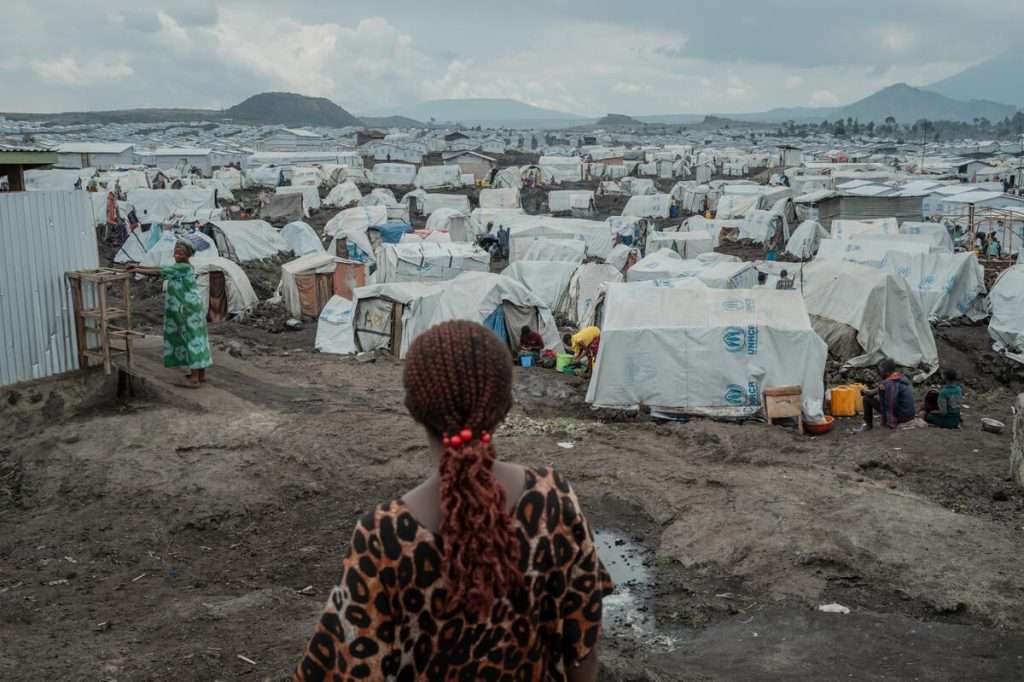Burundi faces influx of refugees as M23 rebels advance in DRC

Burundi is experiencing its largest refugee crisis in more than two decades, according to Brigitte Mukanga-Eno, UNHCR’s Representative in Burundi, as reported by the BBC on 4 March.
Her statement followed the latest offensive by the Rwandan-backed M23 rebels in the Democratic Republic of Congo (DRC). More than 70,000 Congolese refugees have crossed into the neighbouring country, many seeking refuge in Cibitoke Province, fleeing escalating violence in North and South Kivu, according to the BBC. This comes after weeks of intensified clashes, with the Congolese army recently pushing back M23 from key towns in North and South Kivu.
Among those fleeing to Cibitoke Province is Clarice Kacindi, a mother of four who lost her three-year-old child while crossing the Rusizi River. “One of my children was lying on a raft in front of me while I held three others beside me. When we reached the middle of the river, the raft broke in two, and my child was swept away,” she recounted from a makeshift refugee camp in Rugombo.
The Rusizi River, spanning 300 metres, has become an escape route for those fleeing the violence. Reports from the BBC indicate that at least 20 people have drowned attempting to cross.
According to the report, up to 25 people are packed into a single white tent, while many others sleep in the open. Food and medical supplies are scarce.
The M23 rebels have steadily expanded their control over eastern DRC. The group seized the key city of Goma in January and captured Bukavu, the capital of South Kivu, in mid-February. Their advance has displaced tens of thousands, with many fearing forced recruitment into their ranks. Rumours of forced recruitment have previously caused panic in Goma, prompting parents to rush to schools and pull their children out early.
Among those who fled was Jordan Bita, a Congolese man who made his way to Rugombo refugee camp. “M23 fighters are everywhere, and they are forcing us to join them to fight against the government,” he told a BBC reporter. Like many others he risked his life crossing the Rusizi River, to avoid being forcibly conscripted into the M23 rebel group.
Burundi has responded by deploying over 10,000 troops to the DRC, reinforcing Congolese government forces against M23. The majority of Burundian troops are stationed in Uvira, a city of over 300,000 people, now on high alert as M23 forces move south.
Burundi has long been a natural ally of the DRC, largely due to its hostile relationship with Rwanda. Both nations have accused each other of destabilisation efforts. Now, Burundi fears that M23’s growing presence in South Kivu could strengthen Red Tabara, a Burundian rebel group linked to past attacks on Burundian territory.
Unlike Rwanda, which is led by a Tutsi president, Burundi’s government is controlled by the majority Hutu population. Both nations have experienced ethnic-based massacres, and political power struggles between Tutsi and Hutu factions remain a persistent source of instability.
While Burundi has reinforced its border security, concerns remain over the humanitarian and security implications of M23’s territorial gains.
BBC Africa, United Nations.
Want to chase the pulse of North Africa?
Subscribe to receive our FREE weekly PDF magazine











